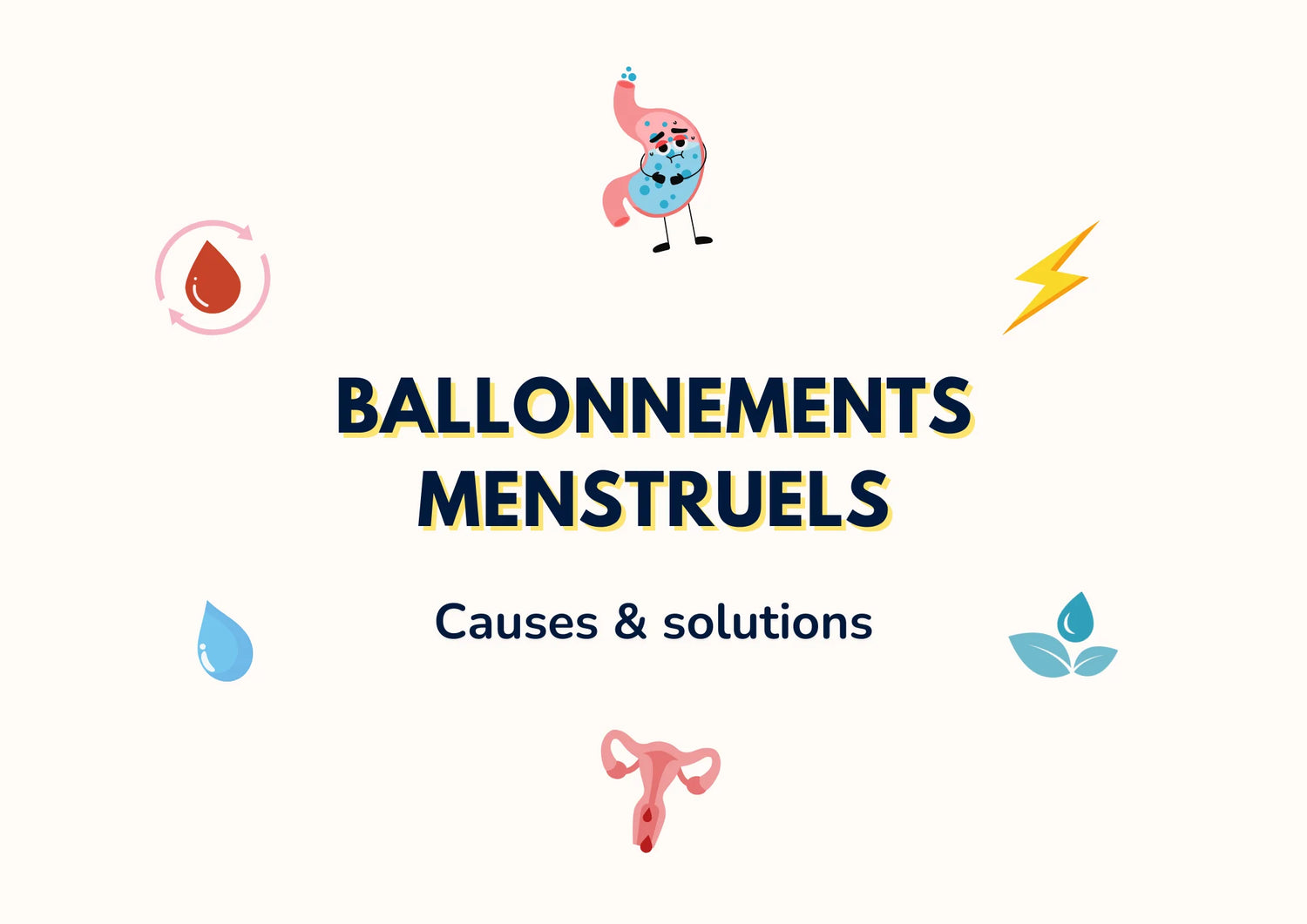You are Muslim and every year, as Ramadan, approaches, a question comes back to your mind: why is it forbidden to fast during menstruation? Is it a religious obligation or a health-related consideration? This question is legitimate and
is asked by many women, sometimes even every cycle. In this article, we will explore this topic from several angles: religious, historical, medical, and practical. You will find clear answers and solutions to fully live your spirituality, even during your menstruation. 🌙Summary
- What are the Ramadan guidelines during menstruation?
- Why can a woman not fast during her period?
- When and how to resume fasting after menstruation?
- The evolution of religious discourse around menstruation and Ramadan
- What are the risks of fasting during menstruation?
- How to observe Ramadan while respecting menstruation?
- Pause during Ramadan
- 1- Adopt a diet suited to your needs
To understand why you are
exempted from fasting during your menstruation, it is essential to revisit the meaning and objectives of RamadanRamadan is the ninth month of the Islamic lunar calendar.
, a sacred month for Muslims worldwide. This month is much more than just a fasting period. It is a time of reflection, strengthening faith and spiritual connection with Allah. During this blessed month, believers are called to abstain from food, drink and harmful behaviors from dawn until sunset. 🌒Ramadan has several spiritual and human objectives
. It purifies the soul, strengthens your bond with your Creator and reminds you of the importance of solidarity towards those in need. Fasting, praying, and meditating help refocus on the essential values of Islam, but also on your own spiritual path. It is an intense experience, both physical and mental, inviting you to surpass your limits while cultivating humility and compassion!But then, why do menstruation interruptthis fasting period, such an essential practice? 🤔
What are the Ramadan guidelines during menstruation?When your menstruation occurs during Ramadan, it can be frustrating to have to
pause your fast
. However, this exemption is provided for by Islam and is based on well-established principles.In Islam, menstruation is considered a natural phase of a woman’s life cycle. 🌸
It is a time when ,your body works hard, and the religion invites you to take a spiritual and physical break
. This exemption is not a punishment nor a lessening of your faith, but a compassionate recognition of your body’s needs!Why can a woman not fast during her period?The exemption from fasting during menstruation is based on the teachings of Islamic jurisprudence, called fiqh. According to these rules, menstruation is considered a period of ritual impurity. During this phase,
women
are exempted from two fundamental practices: fasting
(sawm) and prayer .(salat). This prohibition is not a criticism of your faith, but a relief of your religious obligations to respect your physical and mental state. 😊However, Islam provides an important condition : the days of missed fasting must be made up after Ramadan,
before the next one begins. This obligation emphasizes that even if you are temporarily exempted, you remain fully committed to spiritual practiceWhen and how to resume fasting after menstruation?When your menstruation ends, you must perform the full ablution, called ghusl. This ritual marks the !
purification
and the return to ritual purityFrom the day after your last day of menstruation, you can resume fasting normally. As for making up missed days, it can be done at your own pace, depending on your availability and health. You have .
until the start of the next Ramadan to make them up, giving you great flexibility. Remember that intention, or niyyah, is essential:
making up these days is a sign of your faithand commitment to Allah. 🌟The evolution of religious discourse around menstruation and RamadanThese rules, although clear today, have evolved over time. Let’s see how perceptions around menstruation and Ramadan have changed in Islamic history. 🩸In the early interpretations of
Islam
, menstruation was often seen as a state of total impurity
, justifying a prohibition of many religious practices. Over time, religious discourse evolved to better understand and respect the needs of women. 🌸Today, religious scholars emphasize the importance of seeing menstruation as a natural phenomenon and not as a defect or weakness. Learned women
also play an essential role in educating female believers, explaining their rights and deconstructing certain taboos. These advances allow many women to better live their faith, without guilt or shame!What are the risks of fasting during menstruation?Some women wonder if they can stillfast despite the prohibition. But this carries risks, not only for your
physical health
but also for your overall well-being. 🌸 During your menstruation, your body loses blood and must mobilize its resources to compensate for this loss. If you choose to fast anyway, you may experience significant fatigue, due to lack of energy and essential nutrients like iron. This can also worsen menstrual pain
and premenstrual syndrome (PMS) symptoms.Moreover, fasting can disrupt your hormones, which may lead to long-term complications. That is why it is strongly discouraged, both medically and spiritually, to fast during your menstruation. 😖
How to observe Ramadan while respecting menstruation?You cannot fast during your menstruation, but that does not mean you are excluded from Ramadan. Here are some solutions to continue experiencing this period in a
spiritual and peaceful way.
🤗Pause during Ramadan Islam offers you the possibility to make up missed fasting days after Ramadan, at your own pace. You can choose times when the days are shorter or when you feel better!Interruption of menstruation during Ramadan Some
women
also consider temporarily interrupting their menstruation by taking hormonal contraceptives (such as the pill). This solution can be discussed with a doctor, but it remains controversial from a
religious
perspective. If you choose this method, make sure to do so knowingly and sincerely.Finally, take care of yourself during this period. Eat iron-rich foods, rest, and practice acts of devotion such as invocations (duas) or spiritual readings These are all ways to stay connected to your faith. 🌸Managing physical and mental well-being during menstruation in RamadanEven if you are .exempted from fasting during your menstruation
, this period can be challenging, both physically and mentally. Hormonal fluctuations, fatigue, and menstrual pain. can affect your daily life, even outside of fasting. It is therefore essential to take care of yourself and adopt kind gestures to better live through this phase. 🌷
1- Adopt a diet suited to your needs
During your menstruation, your body loses important nutrients, especially iron. ,To compensate for this loss, favor foods rich in iron such as: Green vegetables (spinach, broccoli) Legumes (lentils, chickpeas) Lean meats.
Combine these foods with
sources of vitamin C
(orange, kiwi, bell pepper) to improve absorption. Also remember to stay well hydrated to reduce fatigue and prevent headaches.
- A
- balanced diet
- is your best ally to maintain your energy. ⚡️
2- Relieve menstrual painAbdominal cramps and other
discomforts related to menstruation can be bothersome.To ease them, you can opt for
natural remedies such as ginger or chamomile teas
, known for their soothing properties.
A hot water bottle applied to the lower abdomen can also work wonders. If necessary, do not hesitate to ask your doctor or pharmacist for medicinal solutions.
The goal is to minimize discomfort so you can live this period more peacefully and focus on your spirituality. 🧘♀️
3- Take time to restYour body works intensely during your
menstruation, and it is normal to feel a
drop in energyGive yourself rest moments, even if your daily life is busy. A short nap
or a
relaxation session can help you recover. Also be gentle with yourself: it is perfectly acceptable to slow down for a few days. Self-compassion is an essential key to get through this period without guilt. 🌸Ramadan .
is a period of intense spirituality, but also of compassion. Islam recognizes your needs as a woman
and grants you the necessary flexibility to fully live this period while respecting your
health. Menstruation does not prevent you from drawing closer to Allah ; it is simply a pause to allow your body to regenerate. Respect these guidelines, make up your days sincerely, and remember that every effort counts. 🌙 Taking care of yourself during your menstruation is also honoring your body and meeting its needs. You will thus be better prepared, physically and mentally, to fully resume your religious obligations and daily life. 💖 29.95 EUR Discover 32.90 EUR Discover Menstrual swimming swimsuit - Lola | Sorio® 49.95 EUR
Discover
29.95 EUR
Discover
34.90 EUR
Discover
29.95 EUR






















 https://mysorio.com
https://mysorio.com


